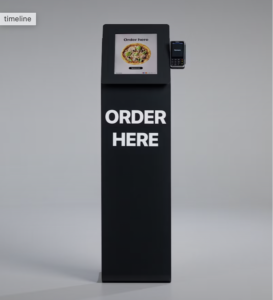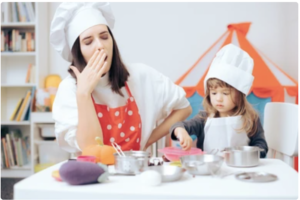Perhaps the most common question I get in all my talks to parents and families around the country is What should I do when my kid says he’s bored and I don’t want to give him the device?
Just this week, a mom told me that her son is always asking her What’s next? I’m bored, what should I do next? This mom, like most parents these days, feels a tremendous pressure to occupy her son’s every moment, to urgently get rid of his boredom and provide him with activities to quell his what’s next? plea.
Children these days have remarkably busy schedules; their time is filled up to the last second of their day. Our kids’ attention is unceasingly attended to and for. Afterschool classes, sports, tutors, playdates, the list goes on. Even at birthday parties, when a dozen kids are gathered together in the same room, the parents feel responsible for accounting for every moment of the children’s attention. Fifteen minutes for arrival gift-placing, juice boxing, greeting… next the magician and balloon artist, (attention occupied, 45 mins)… next pizza, cake, and candles (20 mins)… next some kind of “freestyle” dance or art period led by an adult (10-15 mins)…next swag bag (5 mins) followed by shoes and coat retrieval (10 mins)… next, it’s time for the children to go (and someone else to occupy their attention).
Being bored has become this frightening and dreaded experience to which we parents must respond immediately. Boredom is not up to a kid to figure out anymore, it’s a parent’s issue and a parent’s problem. Boredom is a state that our children shouldn’t have to endure, and allowing our kids to experience it, not taking it seriously, might even be a sign of parental neglect. As we mistakenly imagine it, boredom is a case of a moment not fully lived, a moment deprived of interest.
In addition, we relate to boredom as an absence, something missing. We experience it as a state of nothingness: nothing to do, nothing to think about, nothing to learn, nothing to be with, nothing to play with, nothing to experience. Boredom, as we see it, is emptiness, a void.
As a result of our fear of boredom, we’re encouraging our children to be hyperfocused (not unfocused as we hear), with their attention perpetually focused down on some object of attention. At the same time, technology has created a new normal, namely, constant engagement. With tech has come the expectation that our kids (and even us adults) should be able to live in a state of uninterrupted entertainment and pleasurable busyness, 24/7. Tech makes it possible to meet this expectation by offering a forever-stocked refrigerator of free and interesting food for our attention. We even get to congratulate ourselves for eating around the clock from this fridge, under the guise of learning more, doing more, communicating more, and what we’ve convinced ourselves is the definition of living more.
Sadly, we no longer trust our kids’ ability to tolerate or even survive open, unfilled time. We’ve stopped seeing the value in time without a focus, the profound possibility and potential in the cry I’m bored. Instead, we’ve learned to relate to time without an object of attention as nothing—as opposed to—nothing, yet. The truth is we’ve lost faith in our kids’ imaginations, and the power of human creativity—to generate something when it needs to.
Two things of great value (and more that I don’t have space for here) happen when we’re bored. First, we have to use our imagination; we have to invent food for our attention. This is a skill whose importance cannot be underestimated. Some people say, but Nancy, our kids no longer need this skill of being able to engage themselves because they can just use tech to stay entertained and occupied. It’s an obsolete skill. While it might be possible to stay attached to the IV that is technology for the rest of our lives, to agree with this premise would be like saying that as human beings, we should no longer learn to walk because we have cars now, or no longer attempt to discover peace, because after all, there’s always wine. Regardless of how available and rich the opportunities have become for avoiding boredom, the ability to self-play, create, generate, self-engage is still a profoundly important skill in the development of a healthy human being.
It’s our responsibility as parents to build the skills of imagination and creativity. The way we do it, in large part, is by giving these skills (that are in seed form when our children are young), the chance to play, evolve, do their work, and become. Boredom is water for these seeds. When we’re supplying all the goods for our kids’ attention, we’re actually encouraging our children’s imaginations and creative capacities to atrophy and die.
Secondly, when a child says I’m bored, it’s because he can’t find anything that interests him. But where is he looking? Usually, he’s looking outside himself. When we say we’re bored, it’s because, in essence, we have nothing to distract ourselves from ourselves. We’re stuck with just ourselves and our own attention to pay attention to. Unfortunately, we’re being conditioned to experience ourselves, our own company, as nothing interesting, or simply nothing. When we frantically shove a next activity in front of our child because he’s bored, we’re creating (and supporting) his belief that without something added to himself, he’s nothing.
The remarkable invitation that boredom offers is the invitation to spend time with, take interest in, or at the very least, learn to tolerate our own company. It’s in the gaps between focused activities that we can turn our attention to our own thoughts and feelings, and maybe even to the experience of boredom itself. We can ask, Is paying attention to boredom, boring? When we don’t have an object for our attention to chew on, something else to engage us, we’re left to play with just ourselves. Even if technology now makes it possible for our children to outrun themselves all the way to the grave, to never have to be alone in a room with just themselves, nonetheless, the ability to be with themselves, to not fear or dread their own company, is the most valuable skill our children will ever learn. In boredom lies the possibility that we ourselves can become a worthy destination for our own attention.
In answer to the question my title poses, it’s not only okay to let your child be bored, it’s paramount that you do so. When your child complains that he’s bored, you can simply say, it’s okay to be bored now and then, it won’t hurt you and it will help you, in ways you can’t yet know. And just before they leave the room, just whisper, if only to yourself, Your boredom just means I’m doing my job as a parent.
Read more Nancy Colier on Psychology Today:
https://www.psychologytoday.com/blog/inviting-monkey-tea



One Response
I think people’s fear is more likely that bordem leads to looking for entertainment that is not sanctioned and controlled by teh parent, which means potentially harmful or trouble. It’s likely more parental anxiety and fear about bad outcomes that leads to this. Will the kid go poking sticks in beehives? Climbing furniture? etc